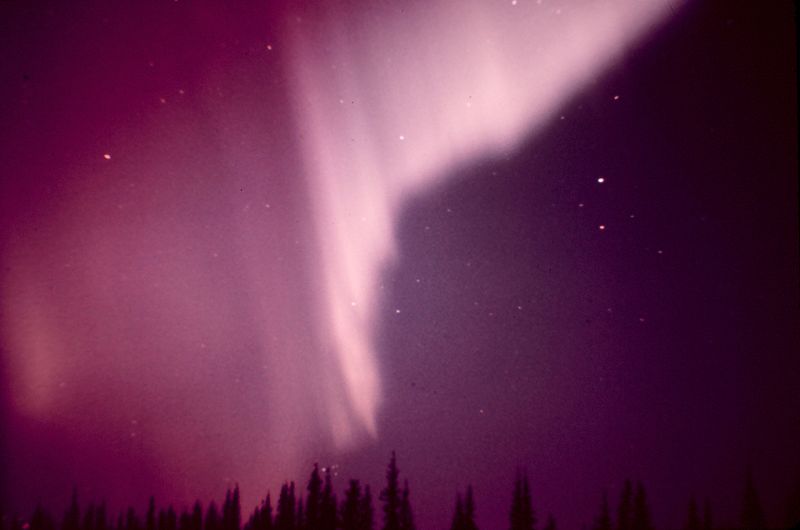


I dream of one day being able to see such beauty for myself. To sit in awe beneath the shimmering lights I feel would be utterly breathtaking.
Part of their beauty and magnificence is the mystery involved; that is until now.
Science as always wishes to know more and more about our world and that is not a bad thing. For the past couple of years scientists in both Canada and the US have worked to better understand the cause of these magnificent lights, and apparently they have found the cause.
"The Earth's magnetic field buffers the planet from much of the cosmic radiation of the solar wind, but in doing so takes on the shape of a teardrop, with the side facing the sun compressed while the opposite side stretches out into a far-reaching tail.
One theory on solar substorms suggests that as energy builds up in this tail it stretches it out farther and farther out until, stretched to its limit, the magnetic field snaps back like an elastic band, converting the built-up energy into kinetic and heat energy that returns to the Earth.
Some of the charged particles hit close to the planet's upper atmosphere, where they interact with the gas molecules to create the spectacular displays that are viewable at high latitudes."
Interesting, no doubt, however I can't help but echo the insightful comment of one of my favorite people; Calvin.
Yes, that Calvin.
It was Calvin (speaking for the masterful Bill Waterson)that said:
"That's the problem with science. You've got a bunch of empiricists trying to describe things of unimaginable wonder."
I would have never thought it possible for someone to make these magnificent displays seem so boring. Charged particles interacting with gas molecules. Whoopee.
As important as scienitic inquiry and discovery is, perhaps they could hire a few writers to come up with descriptions that match the beauty and wonder of what they are describing.




